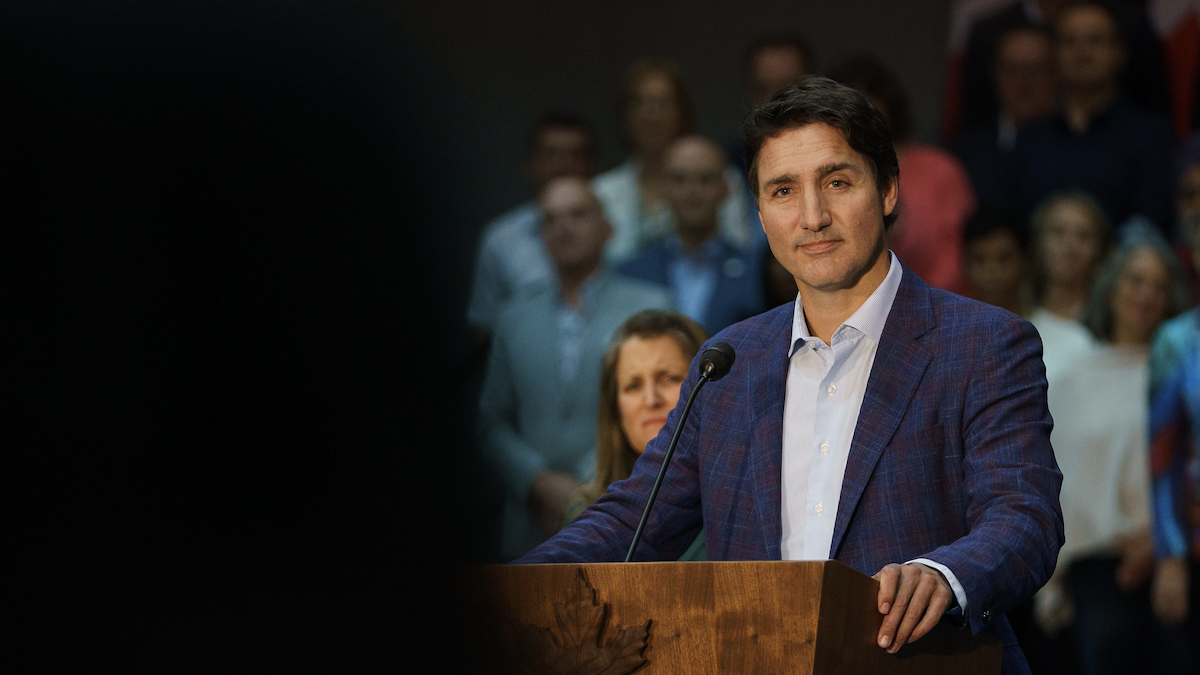A lot of metaphorical ink has been spilled on the duelling open letters about the Alberta Government’s scheme to pull the province’s still-skeptical population out of the Canada Pension Plan, the first from Prime Minister Justin Trudeau on Wednesday and the response from Alberta Premier Danielle Smith later the same day.
The PM’s letter warned that the UCP scheme “would weaken the pensions of millions of seniors and hard-working people in Alberta and right across the country.” Trudeau vowed not to sit by idly and let the Smith Government hurt Canadian and Alberta pensioners alike.
This is why, he continued, “I want to assure Canadians and Albertans that I will always defend their pensions and retirement security against any actions that would threaten its certainty and stability. I have instructed my Cabinet and officials to take all necessary steps to ensure Albertans – and Canadians – are fully aware of the risks of your plan, and do everything possible to ensure CPP remains intact.” (Emphasis added.)
Smith’s riposte adopted a whiny tone to complain “it is disingenuous and inappropriate for you to stoke fear in the hearts and minds of Canadian retirees on this issue” and went on to threaten “serious legal and political consequences.”
The former statement is pretty rich given the obvious mendacity of the UCP’s publicly paid pension propaganda to date, especially given the legitimacy of the fears of Canadians who depend on the CPP for a dignified retirement. And who can forget that one of the authors of the strategy that animates the UCP’s pension plans, Calgary political scientist Barry Cooper, argued that its goal should be “to hurt the rest of the country … to inflict a little pain on Canada.”
As for the latter threat, it just sounds like hollow posturing. Consequences? Like what?
Still, it’s probably too soon to pick a winner in this initial exchange of, as University of Calgary political scientist Lisa Young described it in a delightful phrase, epistolary federalism.
That, of course, hasn’t stopped some pundits from trying.
Columnist Graham Thomson, writing in the Toronto Star, asked rhetorically: “Did Prime Minister Trudeau just walk into a trap set by Alberta Premier Danielle Smith?”
Thomson seemed to think the prime minister had indeed blundered into a snare, because by merely responding to the UCP’s ridiculous argument that a province with 16 per cent of the country’s population is entitled to 53 per cent of the contents of the CPP investment fund he somehow lent credibility to the high-risk proposition of handing anyone’s retirement savings to the UCP.
Well, Thomson is usually a shrewd observer of the Alberta political scene, but this conclusion seems like a bit of a reach.
Prof. Young’s observations had something of the same tone, suggesting that since the UCP’s long-term goal is “to foment separatist sentiment,” therefore the PM’s letter could let the premier persuade us Ottawa’s moves to protect pensioners were “yet another historic humiliation of Alberta.”
It seems to me more likely, though, that Smith’s pension machinations have handed the Trudeau Government – seemingly on the ropes if recent polls are to be believed, and they probably are – an excellent way to let the air out of federal Conservative Leader Pierre Poilievre’s tires.
Anecdotal evidence suggests the UCP pension scheme is extremely unpopular in Alberta, and not just with the usual political types. The one available poll on the topic seems to support this observation. There’s sure to be more polling soon that either backs up this conclusion or disproves it. In the meantime, the Smith Government’s disingenuous and publicly funded propaganda campaign to win support for the idea doesn’t seem to be having much impact on a distrustful public.
Probably nothing the federal Liberals say or do will win them enough support in Alberta or Saskatchewan to change much on the Prairies, but it still has the potential to wake up voters in the other eight provinces and two territories to the dangers of voting for a federal Conservative leader with his own problematic relationship to both the truth and the separatists in the UCP.
So what about it? Does Pierre Poilievre support Ms. Smith’s terrible, horrible, really bad idea? Or does he not? His only statement – reported by media – is timid and ambiguous. The circumstances are such that he can run (for prime minister, or whatever) but he can’t hide.
So Premier Smith, God bless her, has handed Prime Minister Trudeau a wedge he can drive deep into the federal Opposition’s support at a moment when things have been looking pretty bleak for him.
What’s more, since Quebec has its own pension plan (as the UCP keeps reminding us, although it helps the Alberta case less than it appears), federal Liberals don’t have to risk support in that province to score points against the Conservatives elsewhere on the pension issue.
It seems likely that Smith’s pension campaign is also bound to drive a wedge into UCP support in Calgary – and, more dangerously for her right now, within her own caucus, where Calgary MLAs have to be worried about the implications of this screwball pension campaign.
How could they not be worried? Remember, like the message on your car’s wing mirrors, the results of the last Alberta provincial election were closer than they appear – in Calgary alone, where the election was won and lost, about 49 per cent for the UCP and 48 per cent for the NDP. Five Calgary ridings saw the UCP and NDP come within about 1 per cent.
This could be just the kind of issue that gets Calgary voters thinking they made a big mistake last May – and MLAs for both parties know it. Expect the inevitable jitters that result to have an impact on caucus unity.



